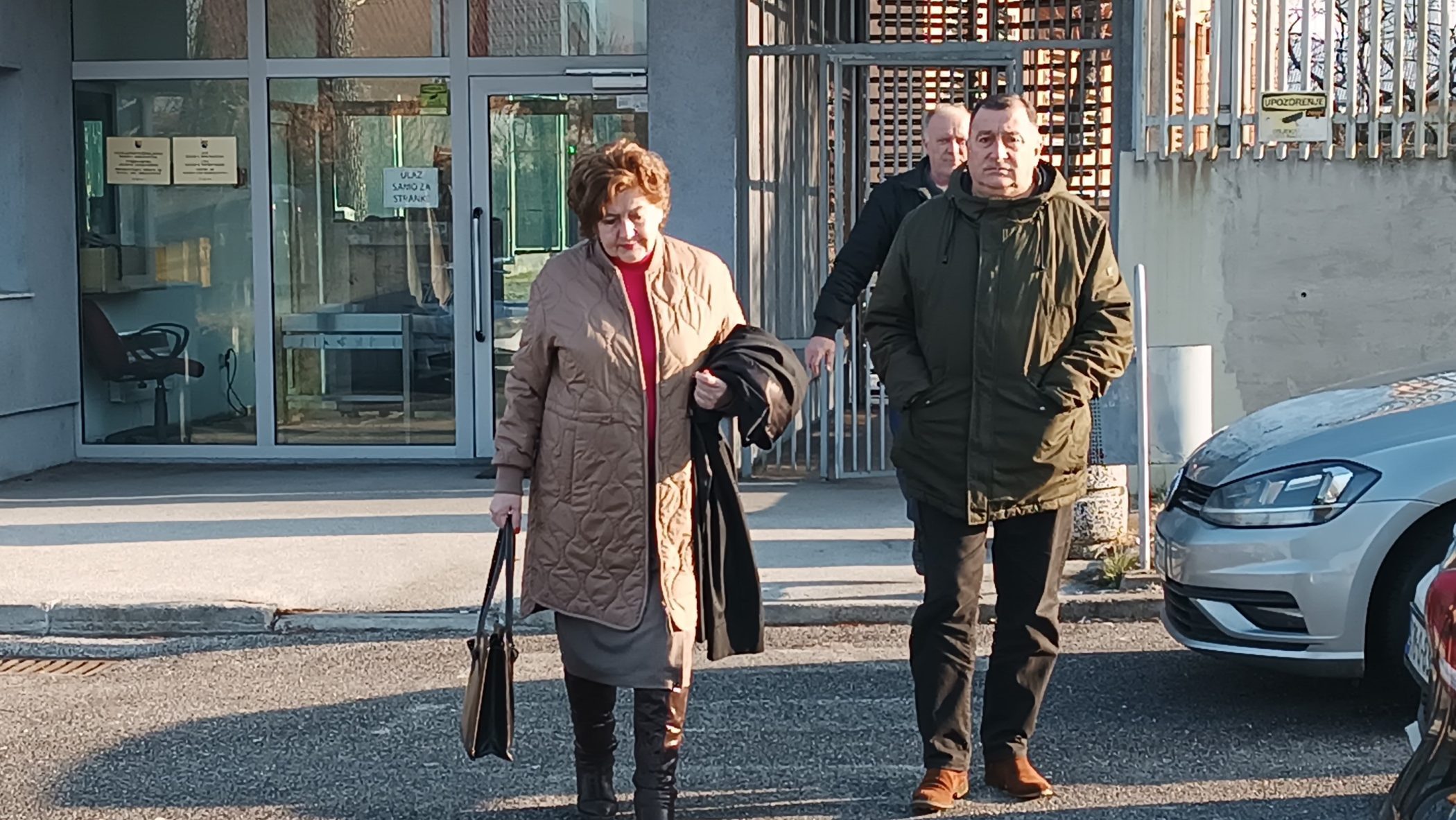This post is also available in: Bosnian
Witness Bosiljka Marjanovic said she saw her mother Jetimija for the last time in the village of Ilovica in March 1992. Marjanovic said she fled the village with her family, while her mother stayed at home. She said when she became a refugee later on, her neighbours told her that her mother had been killed in front of her house.
“Ten years later the Red Cross Commission found the place where my mother was buried. It was in a bush next to the village brook. Her body was wrapped in a shelter-half. We recognized her by my brother’s boots on her feet. The doctor who performed the autopsy on her said she had been shot by a bullet,” Marjanovic said. She said there were no eye-witnesses who could confirm how her mother died.
Witness Milena Ciro from the village of Grab near Trnovo said she has also no direct information about the death of her aunt, Jovanka Lalovic. She said her aunt stayed behind in their family house, while other local residents fled towards Kalinovik in late May 1992. A short time later, she said she heard rumours that her aunt was burned alive inside her house.
“We went to the house with a commission in 1993. We found my aunt’s bones and buried them on the following day,” Ciro said. She said her aunt was the only one who stayed behind in the village and there was no doubt that they were her mortal remains.
Witness Jela Petkovic testified about happenings in the village of Godinje at the beginning of June 1992. “When war activities began, I hid in neighbour Alijica Godinjak’s house with my family and other Serb residents,” she said.
Petkovic said her father Petko and mother Saveta returned home two days later. She said their neighbour Hamdo Godinjak told them it would be better for them to leave because of an incident in a neighbouring village. Petkovic said “a horrible thing happened in Ledinici” on the previous night. Her father and mother decided to stay at home, while she and other local residents fled to the woods.
“My father was exchanged later on, while my mother stayed in the village because she could hardly move. My neighbour Vlado Draskovic, who was exchanged, told me that Edhem and Ismet Godinjak told him that the old woman died a natural death and that she had been buried in the cemetery. I found out later on that when she was alone, some men nailed her door shut, cut the water supply and shot at her door,” Petkovic said.
A year later, when Trnovo came under the control of the Bosnian Serb Army (VRS), Petkovic and her father began searching for her mother. She said they didn’t find her body in the cemetery.
A few days later, she said they found out that a neighbour of theirs with the last name Zulic was detained in the Kula prison. She said Zulic told them they should look for her mother around the house, not in the cemetery.
“A commission came. We found my mother next to the house underneath the remains of our tin roof. She was wrapped in a blanket with a leash around her neck. The doctor said she had been strangled with a female stocking,” Petkovic said.
She said she didn’t see Edhem Godinjak in the village prior to running away.
Defendants Edhem Godinjak, Medaris Saric and Mirko Bunoza have been charged with committing crimes against prisoners and civilians in the Trnovo area. They have also been charged with participating in a joint criminal enterprise with the aim of killing and detaining Serbs in villages in the Trnovo area.
According to the charges, Godinjak was the chief of the public safety station in Trnovo, Saric was the commander of the Territorial Defense Headquarters and Bunoza was the commander of Croatian Defense Forces units.
Witness Milovan Klepic said he also didn’t see Godinjak in the village in early June 1992. Klepic said an old woman named Saveza was the only person who stayed behind in the village. He said he heard she died and that she was buried.
A statement given by Jusuf Ploskic, a local resident of the village of Presjenica, was read aloud at today’s hearing. Ploskic sheltered 25 Serb neighbours in his house during the war. In his statement, Ploskic said the local residents didn’t harm their neighbors. He said policeman Hamdo Krupalija protected them from a man he described as “a soldier from Foca who wanted to slaughter them because his family had been killed in Foca.”
“About 40 local residents were saved and exchanged in Dejcici. We found out that our neighbour Joka was detained in the school building in that village. We used to bring her food. She survived the war,” Ploskic said in his statement. Ploskic also described how the bodies of four of his neighbours were discovered.
“We found Kosta and Jovanka Sehovac inside their house. They were killed. The Ploskics buried them in lime put up next to the house. Mirko and Tankosava Sehovac got killed in Sljivice. Some soldiers passed through the village and killed them,” Ploskic said in his statement.
The trial will continue on March 15.




